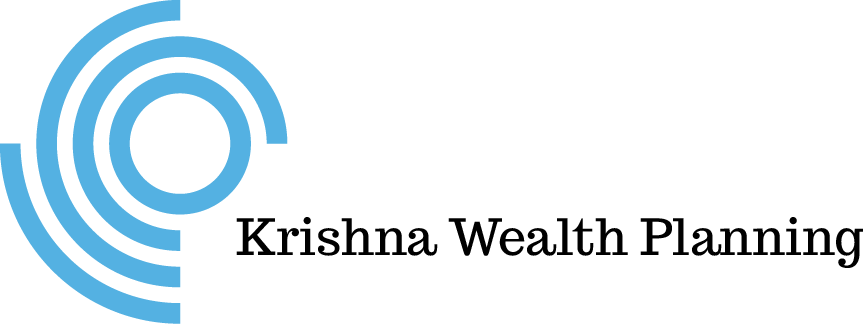4-Minute Read
In my estate planning discussions with clients, one of the most common questions I get is “Do I need a trust?”
In most cases what we’re talking about is a type of trust called a revocable living trust. It sounds fancy, but it is essentially just a legal document that controls the transfer of property after you die. Often when you hear the term family trust, it is the same thing.
You might ask “Can’t I simply transfer my assets with a will?”. In some ways the answer is yes, but there are some critical differences. While I cannot provide legal advice, I would like to provide a general description of how a trust works because it can be an effective tool for your estate plan.
For this piece, we will refer to the revocable living trust as simply a trust. We’ll briefly cover the benefits of a trust, and then we’ll look at some practical considerations should you choose to use one.
The Benefits of a Trust
One – Probate Avoidance
You may have heard about or directly experienced something called probate. It’s essentially a court process to transfer property after death. In some cases, it can be simple, relatively inexpensive, and free of conflicts. In other cases, it can be the complete opposite!
One factor driving how costly probate is where the probate proceedings are taking place. If you have assets in different states, like rental properties or vacation homes, probate can get complex and costly fast.
Perhaps the biggest benefit of a trust is that, if used properly, it can completely bypass the probate process altogether.
What Assets Go Through Probate?
If you don’t have a trust is in place, then some common assets that will go through probate include:
- Bank and investment accounts (certain ones – depends on titling)
- Real Property (primary, vacation, rental homes)
- Personal Property (cars, jewelry, paintings)
What Assets Don’t Go Through Probate?
Even if you don’t have a trust in place, then certain types of assets typically do not go through probate. Such assets pass outside of probate through contracts or operation of law. A few examples include:
- Retirement accounts (IRAs, 401ks)
- Life insurance (assuming a beneficiary is named)
- Bank and investment accounts (certain ones – depends on titling)
Two – Privacy
Assets that go through probate become part of the public record. Trust assets rarely become public. If the privacy of your estate is important to you, you might lean towards using a trust.
Three – Flexibility and Control
A trust can be quite flexible. You can always make changes to it while you’re alive. But I’ll clarify this is not the case for irrevocable trusts.
Just like owning an asset outside of a trust, you have full access to the assets inside of a trust. When you create a trust, you typically name yourself (and spouse if married) as the initial trustees and beneficiaries. As such, you maintain all the benefits of direct ownership.
For tax purposes, having a trust doesn’t create a new set of record keeping. There’s also no need to obtain a new tax ID number. Income from the trust flows directly to you.
Practical Considerations of Using a Trust
It’s rare for you or your heirs to face serious downside risks if you create and maintain a trust. That said, having a trust in your financial plan comes with some considerations.
One – Funding the Trust
One challenge with a trust is you can’t simply sign some papers and forget about it. You will need to transfer assets to the trust. The process of doing so varies based on the type of asset you own.
For example, transferring your home into a trust may require a very specific process by the county where you live. Essentially, you’re signing a deed to transfer your property’s interest into the trust. But that deed may have special formatting requirements by your county recorder.
Some assets don’t directly get transferred to the trust at all. For retirement accounts and life insurance, for example, you name the trust as a beneficiary. Sometimes that is as a primary beneficiary or a backup contingent beneficiary.
Two – Have a Trusted Trustee
When you establish a trust, you are typically the primary trustee. If married, you and your spouse are the co-trustees.
But who is backing you up? Ideally you should have someone you trust serve as the successor trustee. Perhaps this is an adult child, relative or close friend. You want someone you trust who will comply with the terms of the trust.
Three – Other Trust Pointers
All else equal, an estate plan that has a trust will be costlier (in the short run) than a plan without one. How much costlier depends on factors like your location, your plan’s complexity and whether you hire an attorney to implement everything.
Having a trust doesn’t mean you can skip creating a will. However, when a trust is involved, the will is often a relatively simple document. Sometimes they call that a pourover or backup will. This will essentially make sure that any assets at death that were not inside the trust get put into the trust. Just remember assets like this are subject to the probate process mentioned earlier.
Finally, having a trust does not provide any income or estate tax benefits. Because you have full control of the assets, those assets don’t get their tax characteristics changed. You’re still on the hook tax-wise for an income produced by the trust assets.
Where there are possibly tax benefits is if you created an irrevocable trust. While beyond the scope of this piece, irrevocable trusts are sometimes used by high-net-worth families to ensure a more tax-efficient transfer of assets to future generations.
Four – Choosing Not to Use a Trust
Many families choose not to use a trust. Perhaps the costs (time or money) don’t outweigh the benefits described in this piece.
That could be the case if you have a younger family and you’re earlier in the stage of accumulation. Perhaps a standard will coupled with life insurance accomplishes most of your estate planning goals. If you have minor children, a guardian can be named in your will too. You might even make provisions for what’s called a testamentary trust.
While you can never precisely know the time of your passing, it could be reasonable to have a standard will-only estate plan now. Then you plan to add a trust later. In the end, the most important thing is that you take steps to put some type of estate plan in place now!
If you have comments or questions on this piece, please drop me a line at: [email protected]
References
The information on this site is provided “AS IS” and without warranties of any kind either express or implied. To the fullest extent permissible pursuant to applicable laws, Krishna Wealth Planning LLC (referred to as “KWP”) disclaims all warranties, express or implied, including, but not limited to, implied warranties of merchantability, non-infringement, and suitability for a particular purpose.
KWP does not warrant that the information will be free from error. None of the information provided on this website is intended as investment, tax, accounting or legal advice, as an offer or solicitation of an offer to buy or sell, or as an endorsement of any company, security, fund, or other securities or non-securities offering. The information should not be relied upon for purposes of transacting securities or other investments. Your use of the information is at your sole risk. Under no circumstances shall KWP be liable for any direct, indirect, special or consequential damages that result from the use of, or the inability to use, the materials in this site, even if KWP or a KWP authorized representative has been advised of the possibility of such damages.
In no event shall KWP have any liability to you for damages, losses, and causes of action for accessing this site. Information on this website should not be considered a solicitation to buy, an offer to sell, or a recommendation of any security in any jurisdiction where such offer, solicitation, or recommendation would be unlawful or unauthorized.




